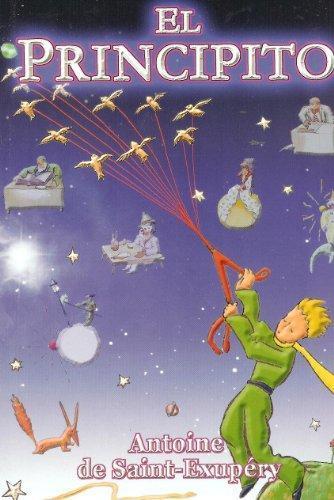valerie reseñó The little prince de Antoine de Saint-Exupéry (Harbrace paperbound library -- HPL 30)
goddammit
4 estrellas
how do you even write a book like this

Idioma Spanish
Publicado el 17 de diciembre de 2012
The Little Prince (French: Le Petit Prince, pronounced [lә p(ә)ti pᴚἕS]) is a novella by French aristocrat, writer, and military aviator Antoine de Saint-Exupéry. It was first published in English and French in the United States by Reynal & Hitchcock in April 1943 and was published posthumously in France following liberation; Saint-Exupéry's works had been banned by the Vichy Regime. The story follows a young prince who visits various planets in space, including Earth, and address themes of loneliness, friendship, love, and loss. Despite its style as a children's book, The Little Prince makes observations about life, adults and human nature. [9]The Little Prince became Saint-Exupéry's most successful work, selling an estimated 140 million copies worldwide, which makes it one of the best-selling in history.[10][11][12][Note 2][14]The book has been translated into over 505 different languages and dialects worldwide, being the second most translated work ever published, trailing only the Bible.[15][16][17] …
The Little Prince (French: Le Petit Prince, pronounced [lә p(ә)ti pᴚἕS]) is a novella by French aristocrat, writer, and military aviator Antoine de Saint-Exupéry. It was first published in English and French in the United States by Reynal & Hitchcock in April 1943 and was published posthumously in France following liberation; Saint-Exupéry's works had been banned by the Vichy Regime. The story follows a young prince who visits various planets in space, including Earth, and address themes of loneliness, friendship, love, and loss. Despite its style as a children's book, The Little Prince makes observations about life, adults and human nature. [9]The Little Prince became Saint-Exupéry's most successful work, selling an estimated 140 million copies worldwide, which makes it one of the best-selling in history.[10][11][12][Note 2][14]The book has been translated into over 505 different languages and dialects worldwide, being the second most translated work ever published, trailing only the Bible.[15][16][17] The Little Prince has been adapted to numerous art forms and media, including audio recordings, radio plays, live stage, film, television, ballet, and opera.[16][18]
how do you even write a book like this